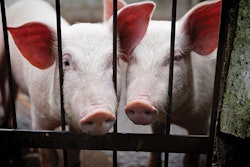
Cargill on July 11 reported results for the fiscal 2019 fourth quarter and full year ended May 31, 2019. Key measures include:
- Adjusted operating earnings were $476 million, down 41% from the $809 million earned in last year’s record fourth quarter. This brought earnings for the full fiscal year to $2.82 billion, 12% below last year’s top performance.
- Net earnings on a U.S. GAAP basis were $235 million, down 67% from $711 million in the strong comparative period. For the 12 months, net earnings decreased 17% to $2.56 billion.
- Fourth-quarter and full-year revenues each dipped 1% to $29.9 billion and $113.5 billion, respectively. Cash flow from operations equaled $5.19 billion, also a 1% decline.
“Throughout the year, we faced a very challenging global business environment that slowed earnings. Still, we improved performance in several food and financial businesses and significantly reduced costs companywide,” said Dave MacLennan, Cargill’s chairman and chief executive officer. In particular, he pointed to the North American protein business, which led earnings by combining strong demand for beef and eggs with consumer insights that helped customers win in local markets.
MacLennan said the company is focused on what it can best control: moving faster, raising efficiency, and creating innovative solutions for customers. “We want to accelerate growth in market segments where our expertise will help us create more value with our customers. Serving them inspires us to reach higher every day.”
Segment results
Adjusted operating earnings in Industrial & Financial Services were up significantly in the fourth quarter; results in the remaining three business segments were below the year-ago level.
Animal Nutrition & Protein was the biggest contributor to Cargill’s earnings for the quarter. Within the segment, North American protein results were slightly below last year’s level, as spring flooding in the U.S. Midwest delayed cattle shipments and cool weather dampened the start of the outdoor grilling season. Still, domestic and export demand for beef remained strong, as did domestic demand for value-added egg products. Global poultry results trailed the year-ago level, hampered by a mix of market and operating challenges across regions. Animal nutrition earnings also were negatively affected by market disruptions, including the reduction in feed demand resulting from the culling of pigs in China and nearby countries to control the incidence of African swine fever, a virus fatal to pigs.
During the quarter, Cargill invested to serve growing demand for protein, particularly across Asia. In June, Cargill opened a $50 million addition to its poultry facilities in China’s Anhui province that increases capacity for cooked chicken products. To the south, a flagship facility for producing premixes and specialty feeds for young animals is under construction in Jiangxi province. It is expected to come on line at the end of 2020. The company also opened a state-of-the-art premix plant in Jordan to meet the specialized animal nutrition needs of customers in the Middle East and North Africa.
Building on earlier moves to diversify its protein business, Cargill invested in Aleph Farms, a cultured meat company focused on growing complex meat varieties such as steak. The new capital will help Aleph Farms move closer to commercialization, with a limited consumer product launch anticipated in three-to-five years. Cargill is committed both to growing its traditional animal protein business and to exploring new opportunities to meet higher future demand for all forms of protein.
Food Ingredients & Applications delivered mixed results across the segment. Starches and sweeteners trailed the year-ago quarter as improved sales volume in North America was offset by higher energy and raw material costs in Europe. Though ahead for the year, edible oils had a softer fourth quarter. Cocoa and chocolate edged out last year’s fourth quarter as strong performance in Europe was partially trimmed by lower sales volume and higher operating costs in North America. Sales of salts for food and water quality applications contributed to higher salt earnings in the fourth period. And the segment’s businesses in Asia saw improvement across several product lines.
As part of a strategy to grow in specialty ingredients, Cargill completed the acquisition of Belgian chocolate company Smet. In Brazil, Cargill is constructing a $150 million pectin plant in São Paulo state. Pectin is a versatile, citrus-based texturizer that has label-friendly applications in bakery, confectionery, dairy, and fruit juices and jams. The new facility, which complements Cargill’s pectin production capacity in France, Germany and Italy, is slated to start up in late 2021.
In Asia, Cargill opened a food and nutrition innovation center in Singapore, where customers can collaborate with Cargill food scientists and culinary specialists to create or reformulate foods and beverages to meet consumers’ changing preferences. The company also announced a $110 million expansion to its corn processing facility in China’s Jilin province, including an adjacent food safety and technology center being built in collaboration with the local government.
Origination & Processing was negatively impacted by the deep uncertainty surrounding the U.S.-China trading relationship, which has overridden global supply-and-demand fundamentals and disrupted trade flows, especially in corn and oilseeds. Adverse wet weather in the U.S. interior also slowed grain marketing and transportation activities. Softening profitability in biodiesel contributed to lower results in Europe. And earnings in South America were held back by a crop shortfall in Paraguay and a difficult crush environment in Argentina.
Earnings in Industrial & Financial Services rose considerably in the fourth quarter, lifted by improved results across metals, risk management and trade finance.
Contributing to sustainable global development
Cargill continues to direct its insights, capabilities and resources toward transforming what is possible in food, agriculture and nutrition. As the new fiscal year began, Cargill published four reports addressing its goals, partnerships and progress to advance sustainability across key businesses: aqua nutrition, premix and nutrition, cocoa and chocolate, and ocean transportation. Additionally, the Soft Commodities Forum, of which Cargill is a founding member, issued its first progress report on soy sourced from Brazil’s Cerrado region, having previously developed a common framework for monitoring progress on supply chain transparency and traceability. The forum, which includes the world’s leading handlers of soy, canola and other soft commodities, was convened by the World Business Council for Sustainable Development to advance collective action. Members’ progress will be reported biannually.
Recognizing the need for bold ideas, Cargill committed $30 million to bring together business, governments and civil society in a concerted effort to end deforestation in Brazil. The intent is to find and accelerate solutions at scale to protect forests and native vegetation while allowing farmers and communities to prosper.
Cargill’s 2019 annual report, Reach Higher, will debut Tuesday, July 30. By integrating financial and corporate responsibility performance, the report will show how Cargill aims to achieve its purpose to nourish the world safely, responsibly and sustainably. In addition to progress measures, the report will highlight how Cargill works relentlessly to deliver for its customers and all who depend on the company.
“We are proud of how far we’ve come in our 154-year-old history, and we know together we can achieve more,” MacLennan said. “With our partners, we are striving to push forward and redefine food systems for everyone’s benefit.”

















